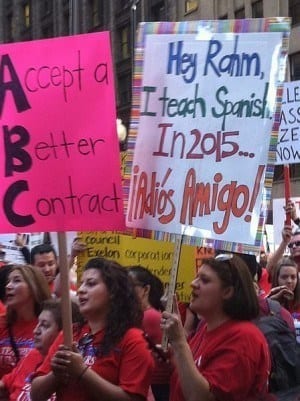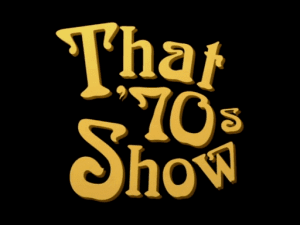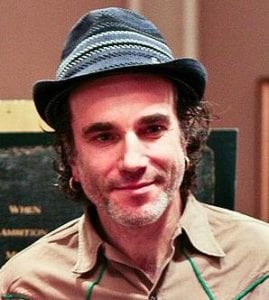
Negotiations not enough to put an end date on strike
Chicago Teachers are still unhappy. Now entering the second week of the strike, union members continue to find themselves at odds with Chicago Mayor Rahm Emanuel, even with a newly proposed contract detailing what Chicago Teachers Union President Karen Lewis called victories for the 29,000 union members.
Chicago teachers look to meet with their respective schools before making a decision on whether to end their strike so as not to feel rushed in the matter. While teachers deliberate, Chicago public schools will remain closed Monday and Tuesday, with parents planning for their children to remain out of school until at least Wednesday.
The teachers’ union bargaining team met with city officials to discuss the terms of a proposed contract, one that would stray from merit pay and enable teachers to appeal their evaluations. Evaluating teachers based on students’ standardized test scores, along with the impending threat of teacher layoffs due to school closures have been key talking points in the negotiations. Teachers want to be sure that if they do experience school closings, then the laid-off teachers will be relocated for other jobs within the district.
Among the reforms Chicago teachers have been calling for regard issues of pay, evaluation, hires/job security and textbooks.
Teachers want a three-year contract that guarantees a 3% increase in the first year and 2% increases for each of the remaining two years. Also included in the possibility of the contract being extended a fourth year with a 3% raise.
With Emanuel’s new legislation, 70% of teacher evaluations would rely on how educators teach, while the remaining 30% would depend on the manner in which students improve. This imbalance would put greater pressures on Chicago teachers in terms of teacher practice, rather than student growth. These evaluations would not affect tenured teachers during their first year.
On the matter of hires and job security, Chicago Public Schools would hire more than 600 teachers who specialize in art, music, foreign languages and physical education, to name a few specialties. Teachers want to ensure that they will be able to find work somewhere else in the district if they happen to be laid-off, and the Chicago school board has pushed to leave teacher relocation control to school principals.
Teachers have also pushed for earlier textbook acquisition for their students. With this, Chicago students would have their textbooks on the first day of school as opposed to having to wait up to six weeks.
In an effort to quell the strike and put teachers and the 350,000 kindergarteners, elementary and high school students back in schools, Mayor Emanuel said he would file an injunction against the union to force an end to the holdout.
Calling the strike “illegal,” Emanuel believes that the Union walkout occurred over issues that are not subject to strike under Illinois state law.
Emanuel, who has been pegged as the villain during the teachers’ strike, released a statement on Friday:
“This tentative framework is an honest and principled compromise that is about who we all work for: our students. It preserves more time for learning in the classroom, provides more support for teachers to excel at their craft and gives principals the latitude and responsibility to build an environment in which our children can succeed.”
There is little hope that even with the newly proposed negotiations teachers will step off picket lines and return to classrooms, but so far this has been the most headway both Union members and city officials have made in the last week.
When it all boils down to it, who really suffers the strike, teachers or the students?















